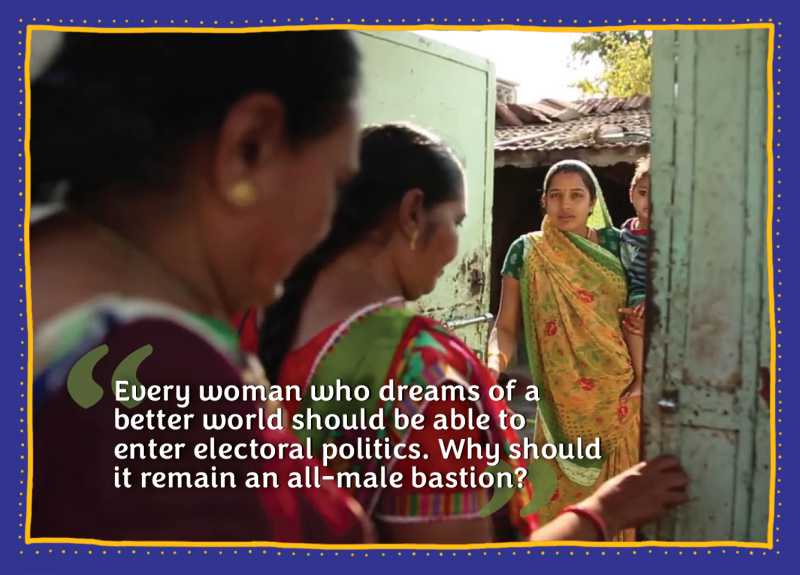
Play Video
Quote by Hiraben Solaki from the film Elected Women Representatives Organising for Change
In a society steeped in feudalism, patriarchy and casteism, how can elected women representatives really be seen and heard? How can affirmative action not be reduced to mere tokenism? The women of the Mahila Swaraj Manch have been carrying these questions at the heart of their movement since their birth in 1997. The more they empower more Elected Women Representatives, the more the feudal society pushes back, finding newer ways to disavow these women, to invalidate their presence and work. But the Manch powers on, and the resistance builds.
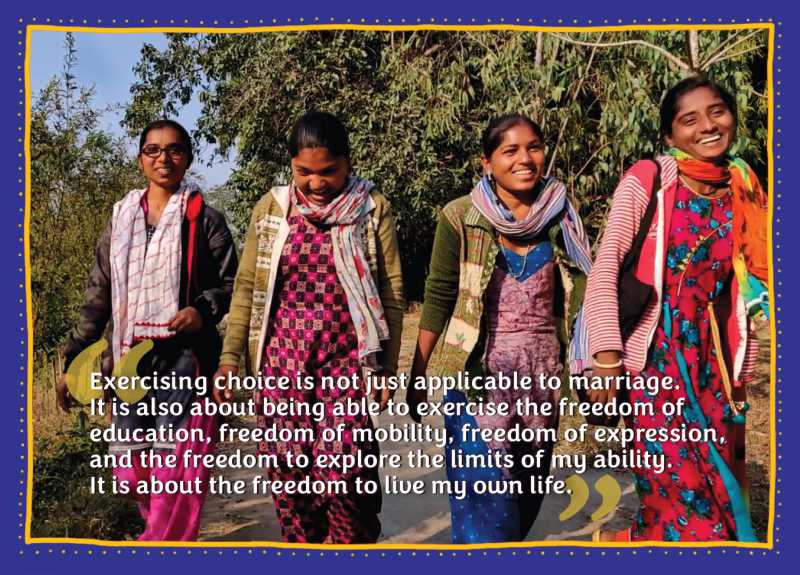
Play Video
Quote by Hiraben Solaki from the film Elected Women Representatives Organising for Change
In a society steeped in feudalism, patriarchy and casteism, how can elected women representatives really be seen and heard? How can affirmative action not be reduced to mere tokenism? The women of the Mahila Swaraj Manch have been carrying these questions at the heart of their movement since their birth in 1997. The more they empower more Elected Women Representatives, the more the feudal society pushes back, finding newer ways to disavow these women, to invalidate their presence and work. But the Manch powers on, and the resistance builds.
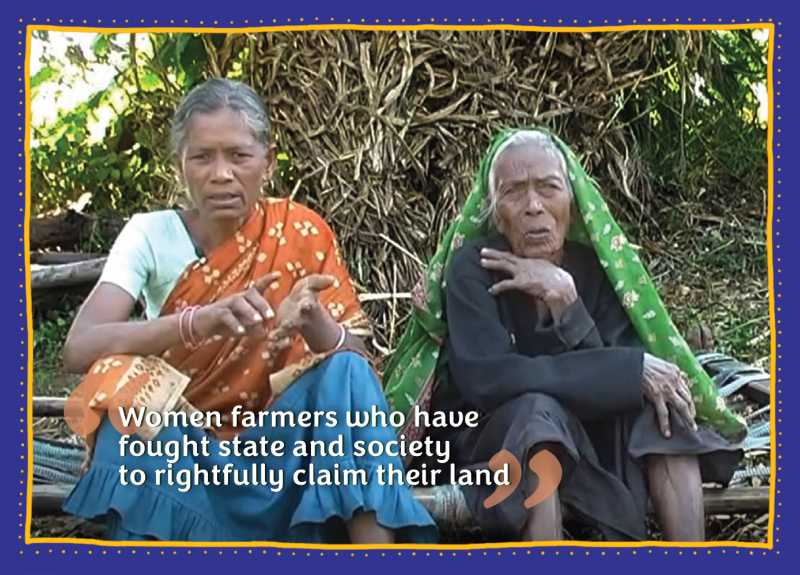
Play Video
Only 8% of Indian women have land in their own name. This fact enters into a vicious cycle of not recognizing women as farmers, dispossesing them of their rightful inheritance, making them dependent on men, and then in turn invalidating them in any claim to natal or marital property. This cycle becomes even more suffocating for women when juxtaposed over rural, tribal, poor identities. The state and its bureaucracy do precious little to ensure the protection of these rights, and these battles are so often fought and lost because of how alone women are made to feel. This is a film about the abberations. The woman that fough the long fight and won. And the women’s collective that did not allow them to feel alone.
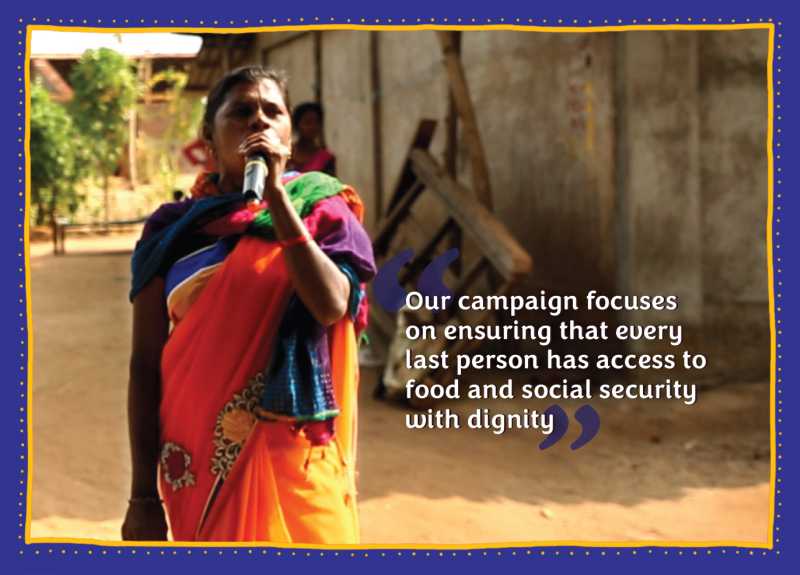
Play Video
Quote by Guliben Nayak from the film Tribal Women Organise for Rights
The state, the society and the law all form a web of violence around tribal women. On one hand, the Forest Rights Act, it’s amendment and it’s implementation threatens to dispossess entire villages of tribals of their native lands, leaving entire populations food and income insecure. On the other hand, the state and it’s terribly biased implementation of the National Food Security Act (NFSA), makes the rural poor beg for entitlements that are rightfully theirs. The society imposes a further veneer of violence by restricting the mobility of women, and targeting single women and branding them witches in a bid to take over their lawfully inherited land. It is as a resistance to the three conspiring to keep women subjugated that the Devgadh Mahila Sangathan was born in 1995. Their collective voice, captured through the poignant songs written and composed by the Adivasi Kalakaar Tukdi (a small creative group within the collective) inspires women to find a way out of the darkness that engulfs us all.
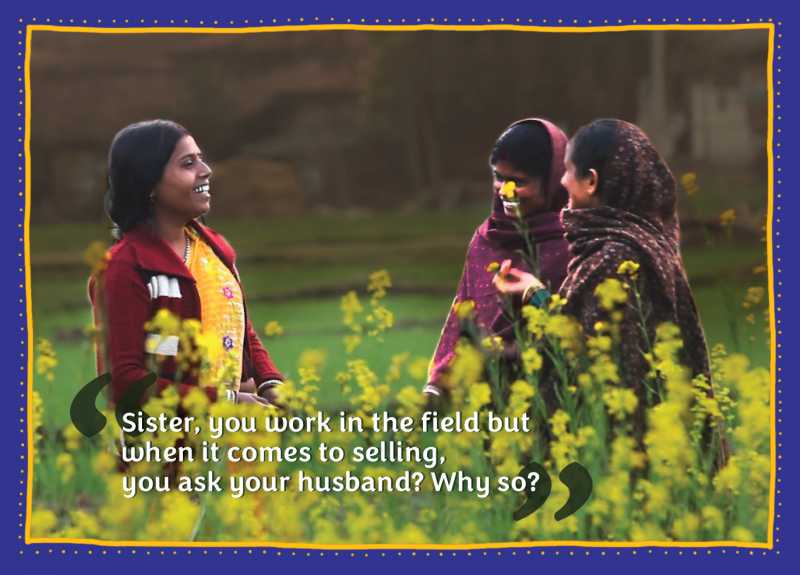
Play Video
Quote by Geeta Devi from the film Mere Haq Meri Pehchaan (My rights my identity)
‘Mere Haq Meri Pehchaan’ looks at a gedered understanding of livelihoods focusing on women farmers. Through a pilot implemented in select districts of Bihar and Madhya Pradesh, UN Women and ANANDI have been supporting government functionaries of the National Rural Livelihood Mission (NRLM) to ensure that it’s design, implementation and monitoring is more gender-responsive.
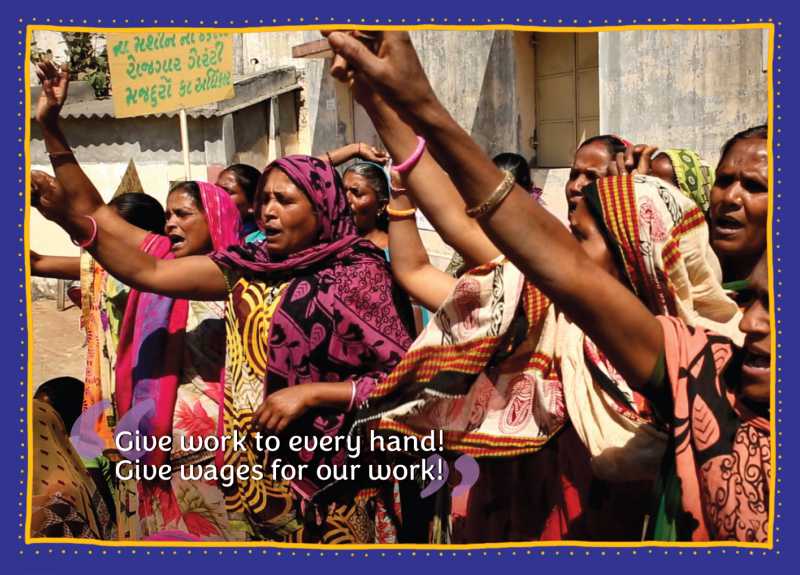
Play Video
Slogan raised by women of the Panam Mahila Sangathan in a still from the film Rural Women Organise for Rights
This film traces the long and successful struggle of the rural women’s collective – Panam Mahila Sangathan – in making sure the Mahatma Gandhi Rural Employment Guarantee Scheme (MGNREGS) is effectively implemented and stays accountable to it’s stated goal of creating local employment and reducing migration. This is the other story of development, that develops in the shadows of big dams and highways. The one that asks: In the race to be more developed, who is it that you’re leaving behind? Of what use is development if it cannot improve the life of the poorest, most marginalised?
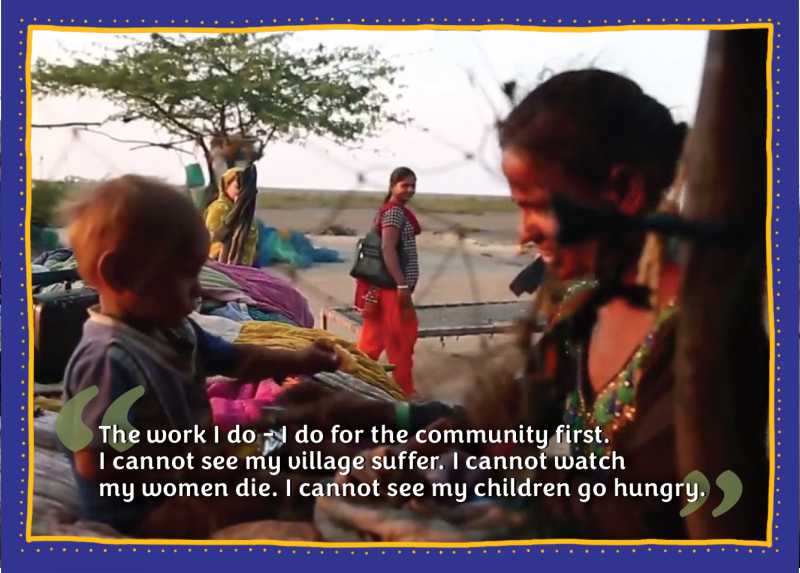
Play Video
Quote by Kesliben Nayak from the film Naino ma Naindaro Nai Aave: The community health worker in feminist organising
The community health worker remains the lynchpin of all grassroots work with health rights globally. They are seen as representatives of the community, fighting for the rights of their own communities to healthy lives. When it comes to the implementation, however, the heavy state machinery weilds a top-down power that stifles this ideal. Three women’s collectives in rural Gujarat are building an alternative: what happens when a health worker sees herself first as an ally and concerned sister of the community? What happens when she is able to see and resist every social determinant that contributes to a margnialised community’s poor health? You have yourself a collective, rights-based, feminist health leader – and a much healthier community.
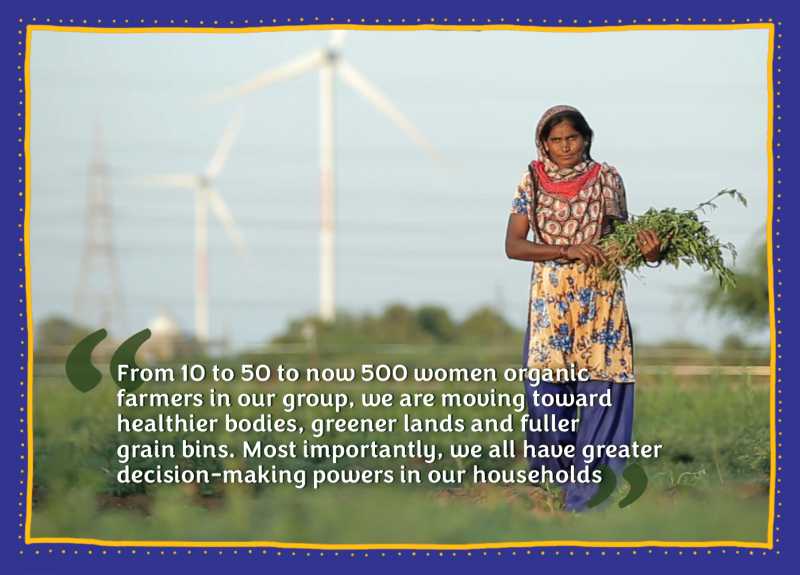
Play Video
Quote by Khatija Ladhani from the film Maari Vadi ne Maare Jher Nathi Aapvu: I don't want to poison my field
This is a small story from an organic women farmers’ collective on the coast of Gujarat. In the face of growing commercialization of crops and land, it is the story of a few resilient voices that dreamt of a less extractive, more harmonious relationship with their land. With cash crops and chemical fertilizers threatening to create a nexus of malnutrition, depleting soil quality and profit-driven farming, the women of the Maliya Mahila Shakti Sangathan ask: is there an alternative? Can we come together to think of a more sustainable solution? Weaving through testimonials and visuals, the film creates a picture of the woman farmer, her struggles, and how collectives empower and inspire change.